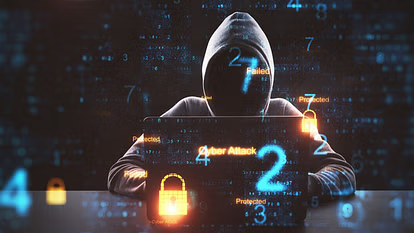After the ceasefire between India and Pakistan, the government became more careful to avoid cyber attacks. Many instructions were given to all the government departments on cyber security. On May 12, the National Informatics Center (NIC) warned all ministries and government departments about ‘increasing threats in cyberspace’. They were asked to take the necessary steps to protect the government’s communication. On May 10, the secretaries of all ministries were asked to begin ‘internal cyber security preparation exercises’ with a view to the ‘growing cyber threats and events across the country’. It is said that the rapid development of technology has increased the extent of attacks and also increased the complexity of cyber risks. Earlier on April 24, a ’emergency safety warning was issued to secure all government sites, applications and ICT infrastructure. According to a report of 30-40 cyber attacks, every day vigilance, the Ministry of Electronics and Information Technology, Nic and India’s Computer Emergency Response Team (Cart-in) has been fighting against cyber attacks on April 22. Earlier, there was news that 30-40 large cyber attacks were failed every day on government departments such as finance, electricity and data centers. The purpose of most cyber attacks is to spoil the websites, steal data and discontinue false traffic. Given the ‘current geopolitical status and increasing threats in cyberspace’, all were advised to be vigilant and follow the rules of cyber security. These rules apply to individual desktops/laptops, as well as applications, databases, servers, data centers and network levels. In light of this, the government has asked all organizations to immediately follow cyber security rules to avoid cyber attacks. This includes changing passwords from time to time, using strong and separate passwords, avoiding suspects or spam -e -mails, removing unknown LAN network devices from the network, upgrading the operating system of all computers/equipment in the latest version/patch and removing old equipment from the network. All ministries were asked to carry out internal preparation for the preparation of cyber security by their main officers for information safety. This will help them stay “before rising cyber threats and promote active safety culture at all levels”. Nic and Cart-in also explained the importance of E-office regarding cyber attack. All functions associated with the government are done in the E-office. Therefore, it is advisable to strictly follow the VPN access protocol, avoid public computers and equipment. It has also been said that government officials should not store their credentials on the phone/computer, or that they should share no sensitive information through a third -party messages -App/e -mail or social media. Special safety instructions have been sent to all those involved in testing, audit, operation and problem solving of government sites, applications, databases or ICT infrastructure/services. Cyber criminals have done deviant acts from the beginning, a week after the April 22 attack, there were reports that suspected cyber criminals tried to target websites associated with security organizations. It also included websites of defense schools and welfare organizations attached to the Ministry of Defense. However, Indian cyber experts were largely successful in failing all cyber attacks and attack attempts in time. But now, the reports that came out, it seems that these cyber criminals are not ready to give up, not even after defeating the Pakistani army in Operation Sindoor.
The flooding of cyber attack after the attack in the Pahalgam, the central government released alarm from danger
